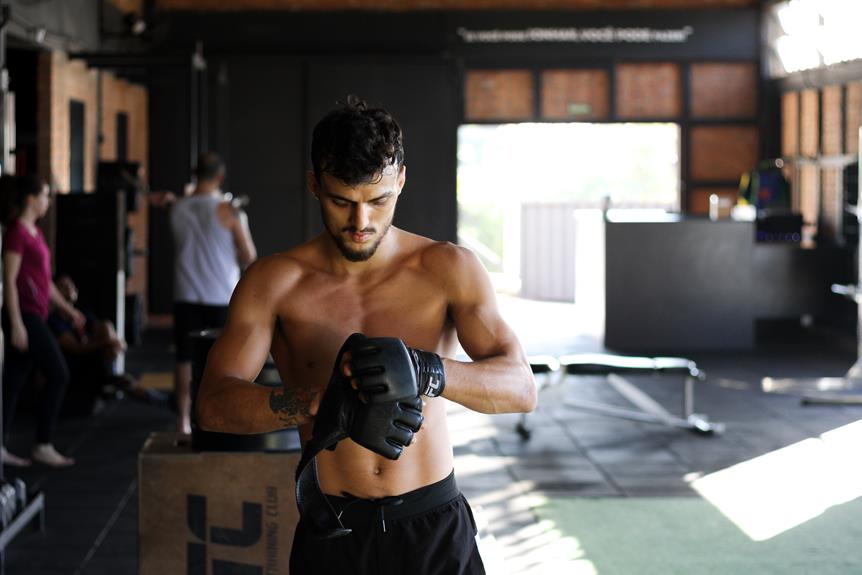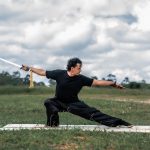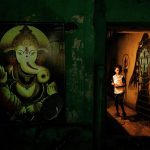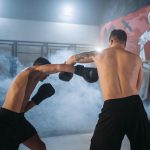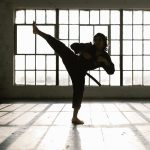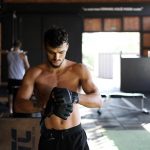In the world of mixed martial arts, the Ultimate Fighting Championship (UFC) is renowned for its talented athletes. While the sport has seen a rise in openly gay female fighters, the presence of openly gay male fighters in the UFC remains noticeably absent.
This article delves into the reasons behind this disparity, exploring factors such as stigma, negative attitudes, and the influence of UFC President Dana White. However, it also highlights the UFC's commitment to LGBTQ+ inclusivity, paving the way for future representation and acceptance.
Key Takeaways
- There are several openly gay female UFC fighters, including Amanda Nunes, Jessica Andrade, Liz Carmouche, Raquel Pennington, and Nina Nunes. They are seen as role models in the LGBTQ community.
- There have been no openly gay male UFC fighters who have gained significant visibility. Fear of stigma, negative attitudes, and potential backlash may contribute to this.
- The UFC and MMA have been vocal in welcoming gay fighters, and Dana White has expressed support for their equal treatment.
- The lack of openly gay male UFC fighters may be due to various factors, including fear of negative impact on their careers, past derogatory remarks by Dana White, evidence of homophobia in other sports, and online abuse from the fanbase.
Openly Gay Female UFC Fighters
Several openly gay female UFC fighters have made significant contributions to the sport. These fighters, such as Amanda Nunes, Jessica Aguilar, Jessica Andrade, Liz Carmouche, Raquel Pennington, Livinha Souza, and Molly McCann, have had a profound impact on the UFC and the LGBTQ community.
Their achievements in the octagon have helped to break down barriers and challenge stereotypes within the MMA industry. Despite their success, openly gay female fighters have faced unique challenges. They've had to navigate a predominantly male-dominated sport and combat the prejudice and discrimination that can exist within the industry.
However, these fighters have remained resilient and have become powerful advocates for LGBTQ inclusion in the UFC. Their presence hasn't only diversified the sport but has also inspired others to embrace their true selves and pursue their dreams in a supportive and inclusive environment.
Jessica Aguilar's Journey as a Bisexual Fighter
Continuing the exploration of openly gay female UFC fighters, Jessica Aguilar's journey as a bisexual fighter adds another layer of diversity and representation within the sport.
Aguilar, who fought in the UFC between 2015 and 2019, came out as bisexual in 2012, six years into her professional MMA career. Despite initial disapproval from her mother, Aguilar received positive responses from her teammates and the MMA community.
Her coming out experience highlights the challenges faced by bisexual fighters in the UFC, including potential stigma and discrimination. While the UFC has shown support for LGBTQ+ inclusion, bisexual fighters may still encounter obstacles in terms of acceptance and equal treatment.
Aguilar's success as the World Series of Fighting strawweight champion in 2014 showcases her resilience and determination in overcoming these challenges.
The Impact of Amanda Nunes and Nina Nunes
Amanda Nunes and Nina Nunes have had a significant impact on the LGBTQ+ community as openly gay UFC fighters. As the first openly gay UFC champion, Amanda Nunes has become a high-profile figure and a role model for many. Alongside her wife, Nina Nunes, they've received messages of support and gratitude from people seeking help and encouragement.
Their presence in the UFC has provided visibility and representation for the LGBTQ+ community, showing that being open about one's sexual orientation isn't a hindrance to success in the sport. Their journey has also highlighted the importance of creating a supportive environment for gay fighters in the UFC.
Amanda and Nina Nunes' impact has helped foster a more inclusive and accepting atmosphere in the sport, which can hopefully pave the way for more support for gay male UFC fighters in the future.
The Groundbreaking Matchup: Jessica Andrade Vs. Liz Carmouche
The groundbreaking matchup between Jessica Andrade and Liz Carmouche marked a historic moment in the UFC, as it was the first time two openly gay fighters competed in the organization. This match holds significant importance for LGBTQ+ representation in the sport and showcases the progress made in creating an inclusive environment in the UFC.
- Increased Visibility: The matchup between Andrade and Carmouche provided visibility and representation for the LGBTQ+ community, showing that fighters of all sexual orientations can compete at the highest level.
- Breaking Barriers: Their participation challenges the stereotypes and prejudices that may exist within the sport and opens doors for other gay fighters to feel comfortable being their authentic selves.
- Overcoming Challenges: Both Andrade and Carmouche have faced their own challenges in their personal lives and careers, demonstrating resilience and strength in the face of adversity.
- Inspiring Future Generations: Their presence in the octagon serves as an inspiration for young LGBTQ+ athletes, encouraging them to pursue their dreams and break down barriers in the world of martial arts.
This matchup not only showcased the skills and talent of Andrade and Carmouche but also highlighted the progress being made towards inclusivity and acceptance in the UFC. It serves as a reminder that talent knows no sexual orientation and that all fighters should be judged solely on their abilities inside the cage.
The Love Story of Raquel Pennington and Tecia Torres
Raquel Pennington and Tecia Torres share a heartwarming love story within the world of UFC. Raquel Pennington, a gay UFC fighter, has been open about her sexual orientation and has become an advocate for the LGBTQ+ community. She shared her coming out story on TUF: Team Rousey vs Team Tate, showcasing her bravery and authenticity. Tecia Torres, also a gay UFC fighter, is Pennington's partner and they have formed a strong bond both inside and outside of the octagon. Together, they navigate the challenges faced by gay athletes in the MMA world, including the fear of stigma and negative attitudes towards being gay. While there are no openly gay male UFC fighters at the moment, Pennington and Torres serve as inspiring examples of love, support, and resilience within the sport.
| Raquel Pennington's Coming Out Story | Challenges Faced by Gay Male UFC Fighters |
|---|---|
| Raquel Pennington openly shared her coming out story, showcasing her bravery and authenticity. | Gay male UFC fighters face challenges such as the fear of stigma and negative attitudes towards being gay. The lack of openly gay male UFC fighters may be influenced by potential backlash and the impact on their careers. The presence of openly gay male fighters in other combat sports suggests that there may be gay male UFC fighters as well. The UFC's stance on LGBTQ+ inclusion and its support for diversity and inclusivity could potentially create a welcoming environment for gay male fighters. |
The Supportive Allies in the UFC
Several UFC fighters have shown their support as allies for the LGBTQ+ community. These straight allies play a crucial role in supporting gay UFC fighters and working towards overcoming homophobia in the UFC. Here are some steps towards creating a more inclusive environment:
- Vocal Support: Straight allies openly express their support for gay UFC fighters, advocating for their equal rights and fair treatment within the organization.
- Education and Awareness: Allies educate themselves and others about LGBTQ+ issues, helping to dispel stereotypes and promote understanding.
- Challenging Homophobic Behavior: Allies actively confront and challenge homophobic behavior or language, fostering a more respectful and inclusive culture.
- Creating Safe Spaces: Allies work to create safe spaces within the UFC where LGBTQ+ fighters feel comfortable being their authentic selves and can thrive.
Through the support and advocacy of straight allies, the UFC can continue to make strides towards a more inclusive and accepting environment for all fighters.
The UFC's Commitment to LGBTQ+ Inclusion
The UFC demonstrates its commitment to LGBTQ+ inclusion through various initiatives and partnerships. The organization has actively promoted diversity and inclusivity in recent years, collaborating with LGBTQ+ organizations and featuring openly gay fighters in promotional materials. This support for LGBTQ+ fighters is evident in the UFC's willingness to create a welcoming environment.
While there are several openly gay female UFC fighters, the presence of openly gay male fighters in the organization is currently limited. However, the UFC's openness to diversity and inclusion suggests that the emergence of a gay male UFC fighter could be embraced.
The impact of LGBTQ+ fighters in combat sports can't be underestimated, as they serve as role models and advocates for the community. By continuing to prioritize LGBTQ+ representation and support, the UFC can further contribute to the inclusivity and acceptance of all fighters, regardless of their sexual orientation.
Frequently Asked Questions
What Challenges Do Openly Gay Male UFC Fighters Face in the MMA Community?
Openly gay male UFC fighters face challenges such as fear of stigma, negative attitudes, and potential backlash from the MMA community. However, they may find support from the UFC's commitment to diversity and inclusion.
Are There Any Openly Gay Male UFC Fighters Who Have Gained Significant Visibility?
While there are openly gay female UFC fighters who have gained significant visibility, there have been no openly gay male UFC fighters who have achieved the same level of visibility. This may be due to various challenges faced in the MMA community.
How Has the UFC Shown Support for Lgbtq+ Inclusion?
The UFC has actively promoted LGBTQ+ inclusion through partnerships and initiatives, demonstrating their support for diversity. They recognize the importance of allyship and have featured openly gay fighters in promotional materials, creating a welcoming environment for LGBTQ+ athletes in combat sports.
What Role Does Fear of Stigma and Negative Attitudes Play in Preventing Gay Male Fighters From Coming Out in the Ufc?
Fear of discrimination and negative attitudes significantly deter gay male fighters from coming out in the UFC. This fear stems from stigma within martial arts and sports, as well as instances of homophobia in other sports. LGBTQ+ representation in sports remains a challenge.
How Have Heterosexual UFC Fighters Contributed to a Potentially Hostile Environment for Gay Fighters?
Heterosexual UFC fighters have contributed to a potentially hostile environment for gay fighters through their homophobic comments. This discrimination creates a challenging atmosphere for gay fighters, contributing to the fear of coming out in the sport.
Conclusion
In conclusion, while the presence of openly gay male fighters in the UFC remains limited, there's been significant progress in the visibility and acceptance of LGBTQ+ athletes in the organization.
From the trailblazing achievements of openly gay female fighters like Amanda Nunes and Jessica Andrade to the supportive allies within the UFC, there's a growing commitment to LGBTQ+ inclusion.
With continued efforts to promote diversity and acceptance, the UFC may pave the way for the emergence of openly gay male fighters in the future, creating a more inclusive and representative sport.
- 15 Best Martial Arts Weapons (Fighting & Training) - October 14, 2024
- Is Fencing a Martial Art? (Yes, 4 Reasons Why) - October 14, 2024
- 7 Best Martial Arts for Self-defense Ranked (Highly Effective) - October 14, 2024
